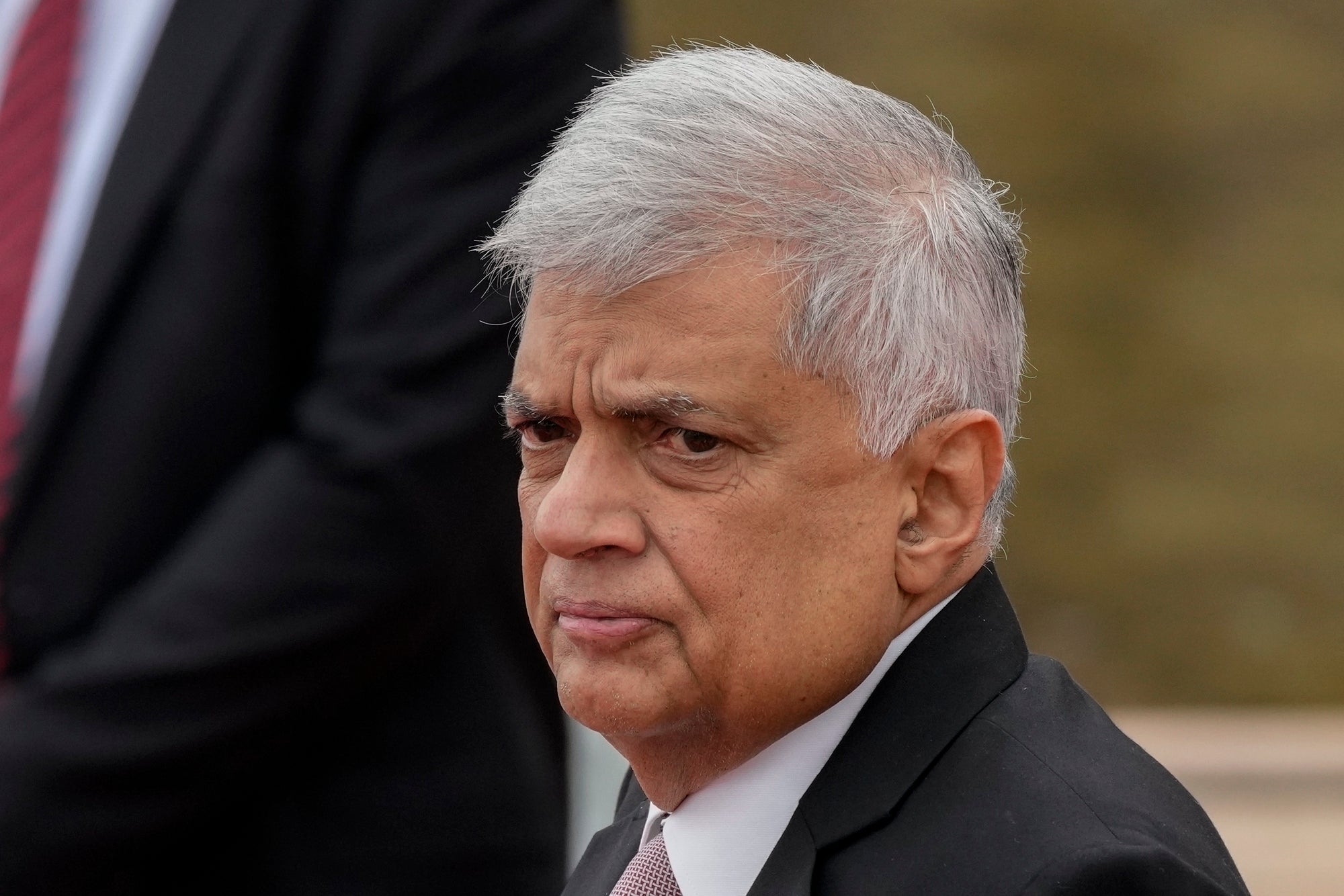Sri Lanka’s former president Ranil Wickremesinghe has been arrested over alleged misuse of state funds for personal travel, police said.
Wickremesinghe, 76, who served as president from 2022 to 2024 and had six prior terms as prime minister, has denied the allegations.
Authorities are seeking to question Mr Wickremesinghe over allegations that he used state funds for a personal stopover in the UK while returning from an official trip in 2023.
This marks the first arrest of a former Sri Lankan president.
In 2023, Mr Wickremesinghe made a stopover in London on his return from Cuba, where he had attended a G77 summit. During the visit, he and his wife, Maithree, participated in a ceremony at the University of Wolverhampton, according to AFP.
Mr Wickremesinghe has insisted that his wife covered her own expenses and that no public funds were used.
But Sri Lanka’s Criminal Investigation Department (CID) said state money financed the private visit, including the costs of his bodyguards.
Earlier this month, authorities also questioned Mr Wickremesinghe’s former presidential secretary, Saman Ekanayake, and his former private secretary, Sandra Perera, regarding their involvement in organising the visit.

On Friday afternoon, local TV captured Mr Wickremesinghe arriving at the Fort Magistrate’s Court in Colombo.
Mr Wickremesinghe has been a prominent political figure since 1977 and was credited with helping Sri Lanka recover from its worst economic crisis. He played a key role in securing an International Monetary Fund (IMF) bailout in 2023.
Mr Wickremesinghe is a lawyer by profession and comes from a politically influential family. He was first elected to parliament in 1977 at the age of just 28.
As leader of the United National Party (UNP), he held multiple terms as prime minister between 1993 and 2019. Amid the 2022 protests that forced Gotabaya Rajapaksa to resign, Mr Wickremesinghe was appointed prime minister and then became president, despite having no parliamentary seat.
Mr Wickremesinghe has faced criticism from human rights groups for promoting repressive laws, cracking down on protests, and suppressing memorial events, according to Sri Lankan outlet the Tamil Guardian.
Mr Wickremesinghe lost last year’s election to populist challenger Anura Kumara Dissanayake, who ran on an anti-corruption platform.







